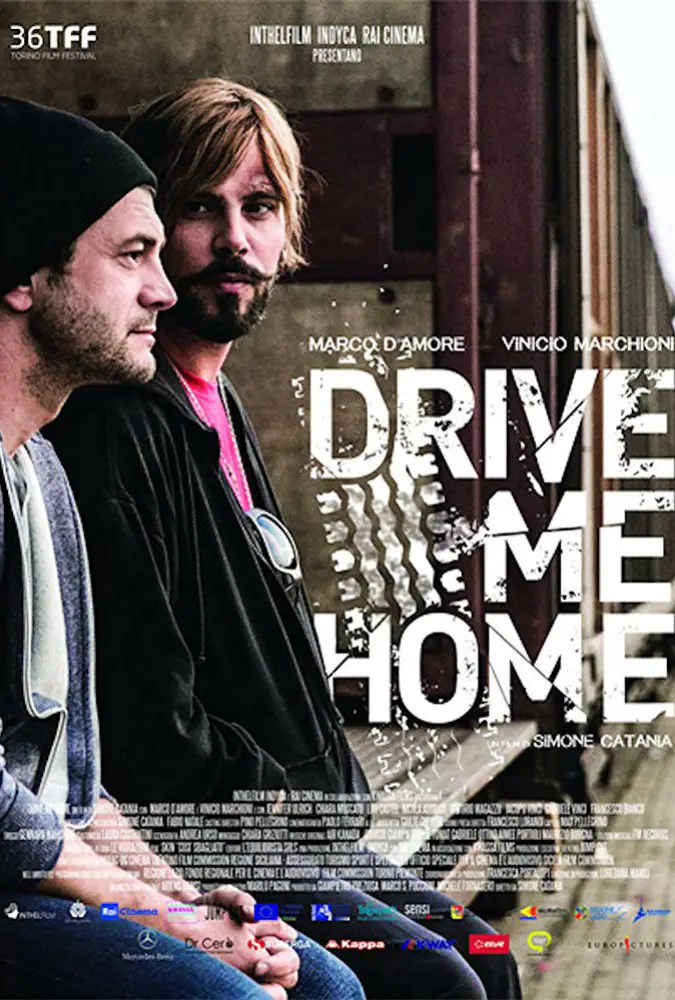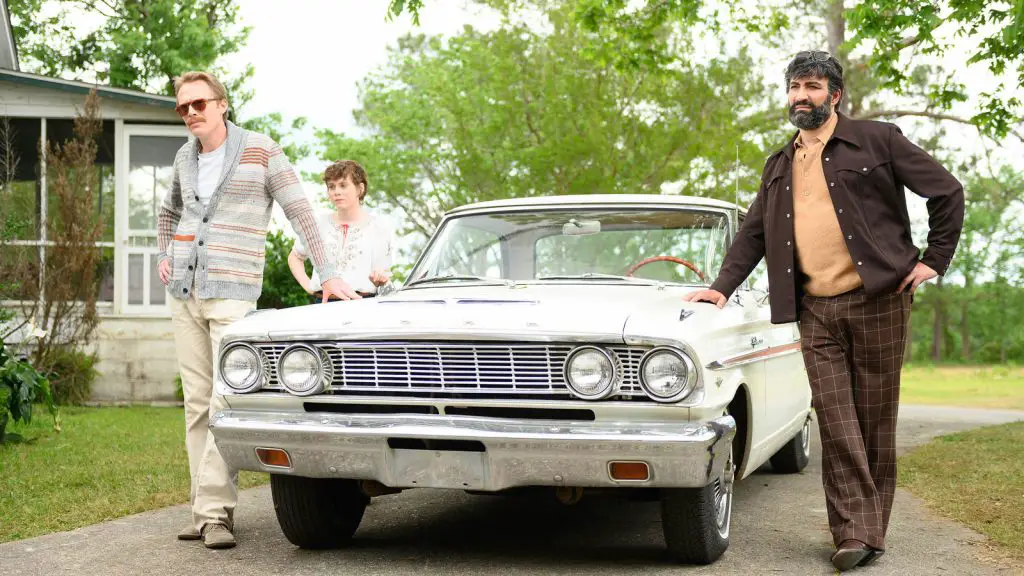
As the stereotype goes, the job of a film critic is to determine whether a film is good or bad. In reality, however, many films don’t fit into this simplistic binary. More to the point, there are a lot of movies that could be described as forgettably satisfactory. In other words, perfectly adequate filmmaking, which nevertheless leaves no kind of lasting impression.

“Antonio tracks down Agostino, now a truck driver, and embarks on a road trip with him across continental Europe.”
Simone Catania’s Drive Me Home offers a pretty good illustration of what this kind of filmmaking can look like in practice. The film’s protagonists are two 30-something men from Sicily. Antonio (Vinicio Marchioni) and Agostino (Marco D’Amore) haven’t spoken since they were teenagers. At the film’s start, Antonio tracks down Agostino, now a truck driver, and embarks on a road trip with him across continental Europe.
Gradually, it becomes clear that Antonio and Agostino are more than just old friends. It turns out that the two of them had a torrid sexual affair when they were adolescents. After Agostino confessed everything to his homophobic father, however, the two boys were split up. To avoid his family’s wrath, Agostino ran away to Belgium, while Antonio ended up spending several years in London.

"…Ultimately, however, this is a film that you’ll forget about almost instantly."



DRIVE ME HOME turned out to be much better than the lack of reviews would lead one to believe. Perhaps because the film’s mostly in Italian and German (with English subtitles). Perhaps because understanding the very deep bond between two boys who through no fault of their own wound up being separated for some 15 years – explaining what transpired in between relies on brief flashbacks and the ability to read each actor’s emotions when such flashbacks occur. Yes, the two friends at an early age became sexually intimate. Yes, they each wanted to build a moat around an imaginary castle where they’d be together forever. One confessed his love for the other to his father, who was the Mayor of a small Sicilian town. His father’s reaction was to beat him and then plan to send him off to school in Switzerland. He ran away. When the other went in search of his friend, he was only told that his friend was now in school in Switzerland. He felt betrayed, abandoned, without even a goodbye. Fifteen years passes. The runaway son becomes a a truck driver – gay, having lost his seven-year lover who fell for another. The other has moved from city to city across Europe. He’s a waiter by trade and perceives his sexual identity to be straight. The times are tough for him, monies short, and his father’s farmland is about to be seized by the state (read the father and Mayor who renounced his friend when he confessed to being gah). Having no one else to turn to, the waiter searches out his long lost friend – a task that proves difficult because his friend fears that the waiter will be ashamed of him. The two do find each other and that’s where a long journey by truck across much of Europe begins. The two old friends are ecstatic to see each other and begin unravelling just what has and is happening with each other. Their reunion’s both playful and, at times, extremely painful for each other. Visually, the films exquisite. Without giving away the ending, suffice it to say that it’s happy. It seems unlikely that the two will ever be more than friends but the bond between them has been forged in fire. Both are changed by rediscovering the truth about what had happened after they were separated. The film proves that not only is it possible for a gay male to love a straight male and vice versa, but that dealing with past trauma and present crises can be slow – but a love that’s heartfelt and pure can evolve. It’s family. Really believe that DRIVE ME HOME has been treated unfairly by film critics.